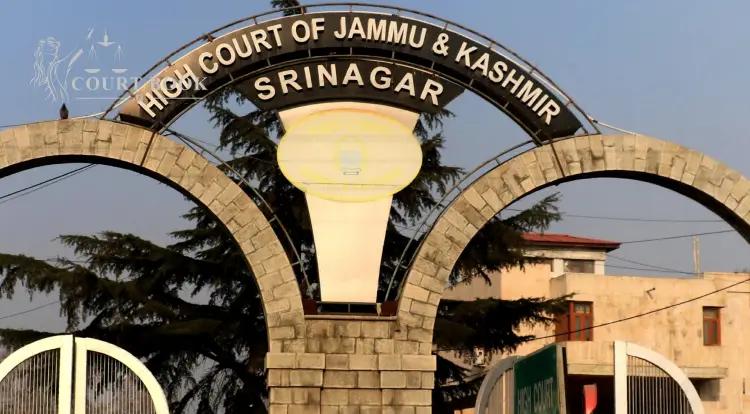The Jammu and Kashmir High Court has ruled that while considering a bail application, courts must assess not only the severity of the punishment but also the nature and seriousness of the offence. In a case involving large-scale corruption, the court denied bail to the accused Chief Engineer, emphasizing that economic offences require a distinct approach.
The case concerns allegations against the Chief Engineer of Konkan Railway Corporation Limited, accused of receiving illegal gratification in the Udhampur-Srinagar-Baramulla Rail Link (USBRL) project. The project is supervised by Konkan Railway Corporation Limited (KRCL), and the allegations involve substantial bribery in return for official favors.
Nature of Allegations and Court’s Observations
The High Court, presided over by Justice Sanjay Dhar, observed that the case involves serious allegations. According to the investigation, the co-accused offered a bribe of ₹9,42,500 to the petitioner-accused, who accepted it in exchange for providing benefits to the company run by the co-accused.
Additionally, a cash amount of ₹73.11 lakh was recovered from the residence of the petitioner, and authorities are still investigating other potential sources. The court noted that the recovery of such a large sum further strengthens the prosecution's case.
The court referenced the precedent set in Y.S. Jagan Mohan Reddy Vs. Central Bureau of Investigation (2013), where it was held that economic offences form a separate category and require a different approach when considering bail applications.
"Economic offences constitute a class apart and need to be visited with a different approach in the matter of bail."
Petitioner's Argument and Court’s Rebuttal
The petitioner cited a Supreme Court ruling stating that since the maximum punishment for the alleged offence is seven years, he should be eligible for bail under the Satinder Kumar Antil case (2021). However, the High Court rejected this argument, stating that the severity of punishment alone is not a deciding factor.
"The mere fact that the offence is not punishable with life imprisonment does not, by itself, become a ground for granting bail."
The court emphasized that the magnitude of corruption involved in the case necessitated a different approach. Given the strong evidence against the accused, including direct recovery of bribe money and witness testimonies, granting bail at this stage was not justified.
Prima Facie Case and Overwhelming Evidence
The court found that there was substantial material in the case diary indicating that the allegations were not baseless. The presence of independent witnesses and direct recovery of bribe money established a strong prima facie case against the accused.
The court referred to Devinder Kumar Bansal vs. State of Punjab (2025), where it was ruled that the presumption of innocence alone is insufficient for granting bail in serious corruption cases.
"The court must balance the cause of the accused and the cause of public justice. Over-solicitous homage to the accused's liberty can sometimes defeat the cause of public justice."
This observation further supported the court’s decision to deny bail, as releasing the accused could potentially hinder the investigation and public interest.
Case Background
The Central Bureau of Investigation (CBI) registered an FIR under Section 61(2) of the Bharatiya Nagarik Suraksha Sanhita (BNSS), 2023, along with Sections 7, 7A, 8, and 9 of the Prevention of Corruption Act, 1988.
The case involves Rajesh Kumar Jain (Petitioner) and Sumit Khajuria (co-accused, Chief Engineer, Konkan Railway Corporation Ltd.), who were allegedly engaged in corrupt activities. The allegations relate to the clearance of pending bills and revision of estimates for tunnel muck removal in the Katra-Dharam section of the USBRL project.
The CBI arrested Rajesh Kumar Jain while delivering a bribe of ₹9,42,500 to Sumit Khajuria. Following the arrest, the CBI recovered ₹73.11 lakh in cash from Sumit Khajuria’s residence. According to the investigation, this amount was accumulated through bribes collected from railway contractors.
Both accused are currently in judicial custody at District Jail, Amphalla, Jammu, following the Special Judge (CBI), Jammu, denying their bail plea. The present case before the High Court arose after the petitioners challenged this decision.
APPEARANCE:
Sunil Sethi, Sr. Advocate with Mr. Mohsin Bhat, Advocate in Bail App No. 49/2025 Mr. Pranav Kohli, Sr. Advocate with Mr. Aftab Malik, Advocate and Mr.Ananya Gupta, Advocate in Bail App No. 50/2025 for Petitioners
Ms. Monika Kohli, Sr. AAG FOR Respondents
Case-Title: Rajesh Kumar Jain VS Central Bureau of Investigation & Ors, 2025















